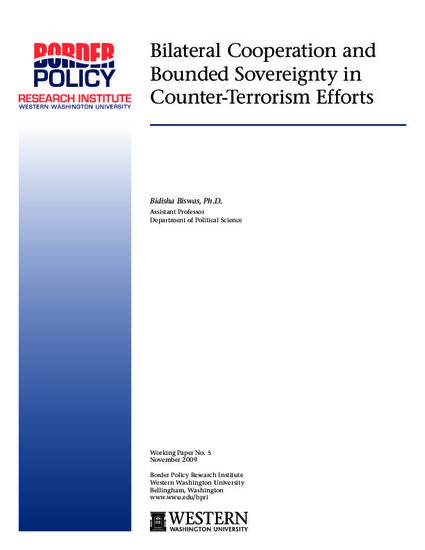
- Border Security,
- Governance
The ‘Global War on Terror,’ led by the United States, emphasizes the role of international alliances in tackling terrorist threats. By their very nature, international counterterrorism efforts challenge state sovereignty by requiring changes to both foreign and domestic policies. This, in turn, creates complex sovereignty issues and raises some interesting questions for closer examination. How has cooperation in counterterrorism altered the perceptions and behavior of allies of the United States? Has the post-9/11 security environment constrained the sovereignty of other nations? This paper will analyze Canada’s cooperation with the US in order to explore these questions. The study argues that Canada’s sovereignty has been bounded, but not determined, by US demands. Examining the relationship between the US and Canada can help us understand both the limitations and the continuing relevance of the traditional concepts of power, sovereignty and interdependence in international relations.
Available at: http://works.bepress.com/bidisha-biswas/43/
